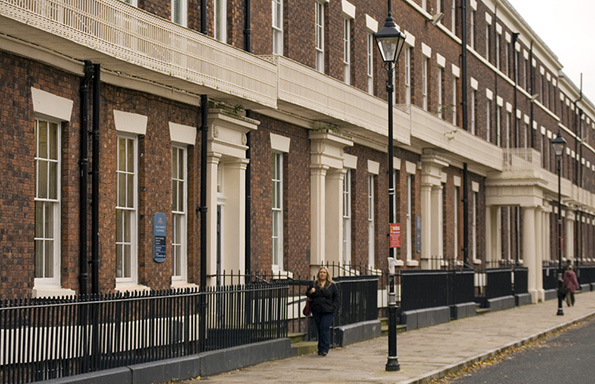
The University of Liverpool’s Centre for the Study of International Slavery (CSIS) has been awarded funding for a series of events which will help local children and young people learn about Liverpool’s role in the slave trade.
This funding, from the US Embassy, aims to enhance understanding of Liverpool’s connection with the United States through the history of slavery, its legacies and representation across the city.
The events, entitled Beyond Walls, Borders, and Barriers: Liverpool’s US Connection – Slavery and its Legacies will include workshops that introduce local children and young people to museums, archives, and cultural centres around the city such as the International Slavery Museum. This includes visits to the University of Liverpool campus and archives.
Those participating in the workshops will engage with and consider different historical narratives around slavery through art exhibitions, film screenings and walking tours of the city of Liverpool with prominent historians.
Schools in Liverpool wishing to register their interest in participating in the events which start in November 2023, or future events hosted by CSIS, can e-mail widepart@liverpool.ac.uk.
CSIS supports and shares leading research about human enslavement and its legacies. Founded as a partnership between the University of Liverpool and National Museums Liverpool, the Centre works together with other universities and organizations to develop scholarly and public activities related to slavery in its historical and contemporary manifestations.
Dr Mary Booth, Programme Manager at CSIS said: “We’re thrilled to receive funding to support young people in the city as they engage with Liverpool’s history of slavery and connections with the United States.
“This unique programme of events will encourage young people to think about how their local environment is linked to the past. We hope this series will advance the international anti-racism conversation and activism within the education and heritage sectors, encouraging young scholars to engage with, participate in, and create independent initiatives.
“We’re also really pleased that we can bring young people to campus and our archives at the University of Liverpool to learn about and advance this incredibly important part of local history.”
John Corish, Associate Director for UK Recruitment and Widening Participation at the University of Liverpool said: “Thanks to the funding from the U.S. Embassy, we’re really pleased that we can extend our outreach offer at the University of Liverpool to secondary schools and colleges in the Liverpool City Region to enhance local young people’s education about the important topic of slavery and help foster a brighter, more inclusive future.
“I encourage interested schools in to get in touch to explore how they can get involved.”